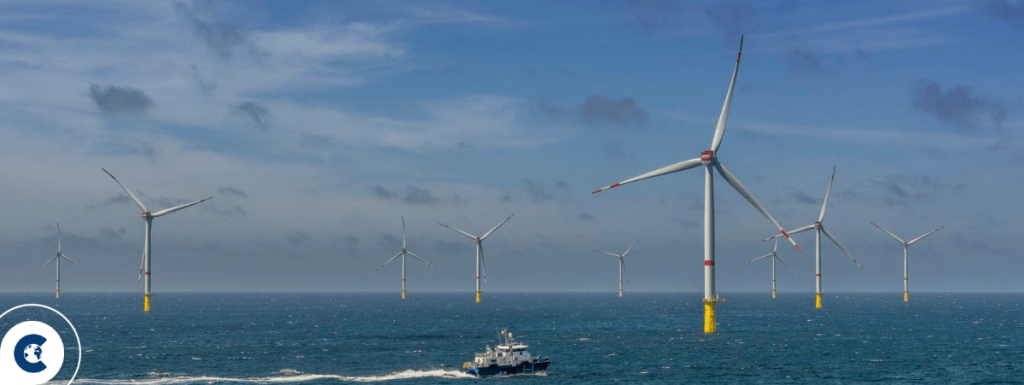Spain Surpasses 2022 Renewable Energy Goals, ClimateTrade Leads with Innovative Clean Energy Solutions
– Spain surpasses 2022 renewable energy production by November 2023, marking a significant growth in green energy production.
– Clean Energy Certificates (EACs) have become a vital tool for companies seeking to enhance sustainability efforts, providing transparency, cost-efficiency, and regulatory compliance.
– ClimateTrade empowers multinational Spanish companies as the leading provider of IRECs
VALENCIA, Spain – February 14, 2024 – Making significant progress towards sustainable energy, Spain has surpassed its 2022 renewable energy production in just the first eleven months of 2023, according to data released by Red Eléctrica. This achievement marks a remarkable growth in the country’s renewable energy production, with green energy now constituting nearly half of Spain’s total electricity output. ClimateTrade is accelerating the renewable energy movement by offering a comprehensive selection of Energy Attribute Certificates (EACs) that exemplify the country’s commitment to clean energy. With a diverse portfolio of projects spanning several continents, ClimateTrade is the leading I-RECs provider – a specific type of EACs – in Spain.
Alejandro Rodriguez, Head of Supply at ClimateTrade, remarked, “Spain’s rapid progress in renewable energy production is a testament to the country’s commitment to sustainability. At ClimateTrade, we are proud to be at the forefront of this movement, offering comprehensive International RECs (I-RECs) that facilitate the transition to renewable energy sources for multinational companies with operations in Latin America.”
What are Energy Attribute Certificates and how do they work?
Renewable Energy Certificates, also known as Energy Attribute Certificates (EACs), serve as proof of electricity generated from renewable sources such as solar or wind farms. These certificates play a key role in the renewable energy market, allowing buyers to highlight their commitment to sustainability while reducing their environmental impact.
EACs are issued as proof of electricity produced from renewable sources. Each EAC proves that 1 MWh has been generated and fed into the grid from a renewable source. Globally, EACs go by many different names. In most European countries, EACs are known as Guarantees of Origin (GOs). In the United Kingdom, they are called Renewable Energy Guarantees of Origin (REGOs), and in the United States and Canada they are called Renewable Energy Certificates (RECs). International RECs (I-RECs) as well as Tradable Instruments for Global Renewables (TIGRs) can be found in several Latin American, African, and Asian countries and are very useful for companies that have offices and/or factories in these regions.
Simplifying the Process of Purchasing Renewable Energy Certificates
ClimateTrade is ensuring that the process of buying EACs on their marketplace is straightforward. Firstly, you would determine how much electricity you consume in each market. Next, choose a project that aligns with your company values and buy the quantity of EACs in your preferred market equal to your electricity consumption. (1 EAC is equivalent to 1 MWh.) Then finally, claim the consumption of renewable energy and receive a personalized certificate that authenticates and traces your purchase back to its source.
Understanding the sources and impact of Energy Attribute Certificates
EACs are issued by electricity grid operators or other bodies in charge of measuring and verifying renewable energy production. Every time a MWh of renewable energy is produced, an EAC is issued and can be sold on the renewable energy market. In the renewable energy market, EACs become an exchange currency. Renewable energy suppliers can sell EACs to non-renewable energy suppliers who need to meet renewable energy requirements set by governments. Non-renewable energy suppliers buy EACs to make up for their lack of renewable energy and meet their clean energy targets.
Explaining the significance of EACs, Rodriguez stated, “EACs provide a seamless solution for companies on their path to decarbonization, specifically for those aiming to tackle Scope 2 emissions and transition to renewable energy sources. They offer transparency, accountability, and compliance with major sustainability initiatives, making them a vital tool for businesses committed to reducing their carbon footprint.”
ClimateTrade – the first point of call for EAC’s in Spain
ClimateTrade offers a diverse portfolio of EACs, including hydropower, wind, and solar projects, ensuring a wide range of options to suit various energy needs. With a global presence, ClimateTrade reinforces its commitment to local communities and sustainable development by facilitating the adoption of renewable energy at the point of origin.
ClimateTrade projects not only play a central role in combating climate change but also actively contribute to the realization of several United Nations Sustainable Development Goals. These initiatives help to ensure access to affordable and clean energy (SDG 7), foster innovation and sustainable industrialization (SDG 9), promote the development of sustainable cities and communities (SDG 11), and urgently addressing climate action (SDG 13).
What are the benefits for Spanish companies purchasing EAC’s to tackle scope 2 emissions?
Energy Attribute Certificates (EACs) offer a multitude of benefits for companies seeking to tackle Scope 2 emissions and transition to renewable energy sources.
Firstly, they provide a seamless solution for flexible consumers, as they do not necessitate any changes to existing electricity procurement processes. This ensures continuity in operations while facilitating the shift towards sustainability. Additionally, EACs are cost-efficient, offering a low-cost approach to sourcing renewable electricity compared to other renewable energy procurement methods.
Their ease of deployment enables companies to rapidly achieve their renewable energy targets, particularly in regions where traditional solutions may be challenging or unavailable. Moreover, EACs provide traceability, allowing companies to reliably track each megawatt-hour (MWh) of renewable energy from generation to consumption, ensuring transparency and accountability in their sustainability efforts.
By adhering to recognized standards set by major sustainability initiatives such as CDP, RE100, WRI, and SBTis, EACs offer assurance of compliance and credibility.
Positioned as a vital decarbonization tool for Scope 2 emissions, EACs are especially pertinent for companies with significant energy consumption, such as technology companies or organizations with large data centers, offering a practical and effective means to reduce their carbon footprint and advance their sustainability goals.
On World Energy Day, ClimateTrade CEO and Co-Founder Francisco Benedito emphasized the importance of partnering with ClimateTrade to embrace renewable energy solutions that not only drive positive impact but also align with companies’ overarching corporate sustainability objectives. Benedito said “ ClimateTrade is proud to be the leading provider of EAC’s in Spain. By purchasing any type of Energy Attribute Certificates (EACs), companies not only contribute to reducing carbon footprints and supporting renewable energy industries but also stand to benefit from long-term cost savings and regulatory compliance.”
EACs are an attractive option for companies in Spain that are committed to enhancing their sustainability efforts, especially on a day dedicated to raising awareness about global energy challenges and solutions. Visit the ClimateTrade marketplace today to explore their selection of renewable energy projects.

ClimateTrade marketplace project – renewable energy from wind plants in the USA.








